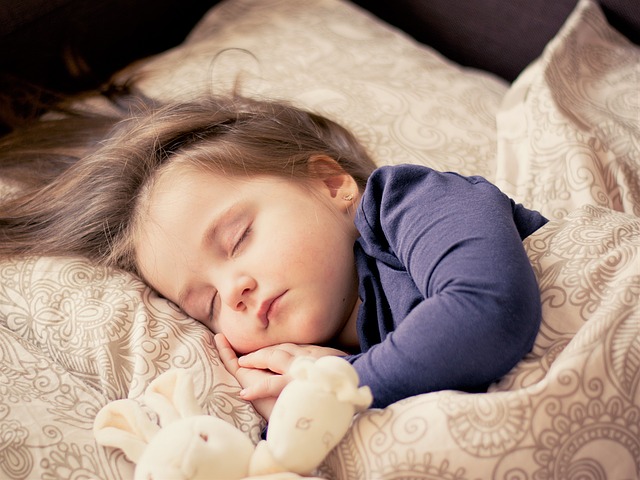 Promoting Better Sleep Habits in Children
Promoting Better Sleep Habits in Children
by Kyla Johnson, M.S., OTR/L
KP West Pediatric Occupational Therapist
Sleep has such an important impact on your child’s mental and physical development. Poor or inadequate sleep can also affect a child’s behavioral responses. Sleep, or lack thereof, can affect your child’s ability to self-regulate and make it difficult for them to attend to tasks, concentrate, and focus throughout the day. Additionally, when children do not get enough sleep, it may compromise their immune system and make them more susceptible to catching a “bug.” It is important to develop a good sleep routine that promotes optimal performance.
If your child is having trouble sleeping throughout the night or having difficulty falling asleep here are a few helpful tips:
Maintain a consistent bedtime schedule
Children tend to get more sleep if they have the same bedtime and wake time every day. Try to keep a consistent bedtime on weekdays and weekends. Although it will happen, staying up late on the weekends and sleeping in late into the morning can throw a child off of their sleep routine for several days.
Avoid spending non-sleep time in bed
Try to use the bed only for sleeping. Avoid other activities such as watching TV, playing on an iPad/tablet, or playing video games because it makes it difficult to dissociate your bed with sleep.
Keep a regular bedtime routine
Having a consistent bedtime routine helps the child prepare for bedtime and get into “sleep mode”. Bedtime routines could include activities such as: brushing teeth, putting on pajamas, listening to calming music, and reading a bedtime story.
Participate in quiet, calm, and relaxing activities
Try creating a calm, quiet atmosphere by dimming lights or turning off lights, reading a book, or playing soft music. Avoid activities prior to bedtime that will excite or arouse your children such as screen time, playing video games, or physical exercise. Deep breathing techniques or imagining relaxing places like being on a beach can also help a child relax.
Avoid Caffeine
Try to avoid caffeine in the afternoon and evening.
Allow time for physical exercise during the day
Playing and exercising during the day can help your child feel more energetic during the day and improve their focus and attention throughout the day. It may also make it easier for them to fall asleep at night.
If they can’t fall asleep, let them get out of bed
If a child has difficulty falling asleep, have them get up and do an activity that is not too stimulating for them, such as reading a book until they feel sleepy. Doing this helps prevent them from linking their bed with sleeplessness or the feeling of being restless.
Discuss the use of a therapeutic weighted blanket
The deep pressure of a weighted blanket helps promote a calming and relaxing effect. Please consult with an occupational therapist if you think a weighted blanket would be helpful for your child.
References:
https://www.choc.org/?s=sleep+hygiene
https://ajot.aota.org/article.aspx?articleid=2636409







